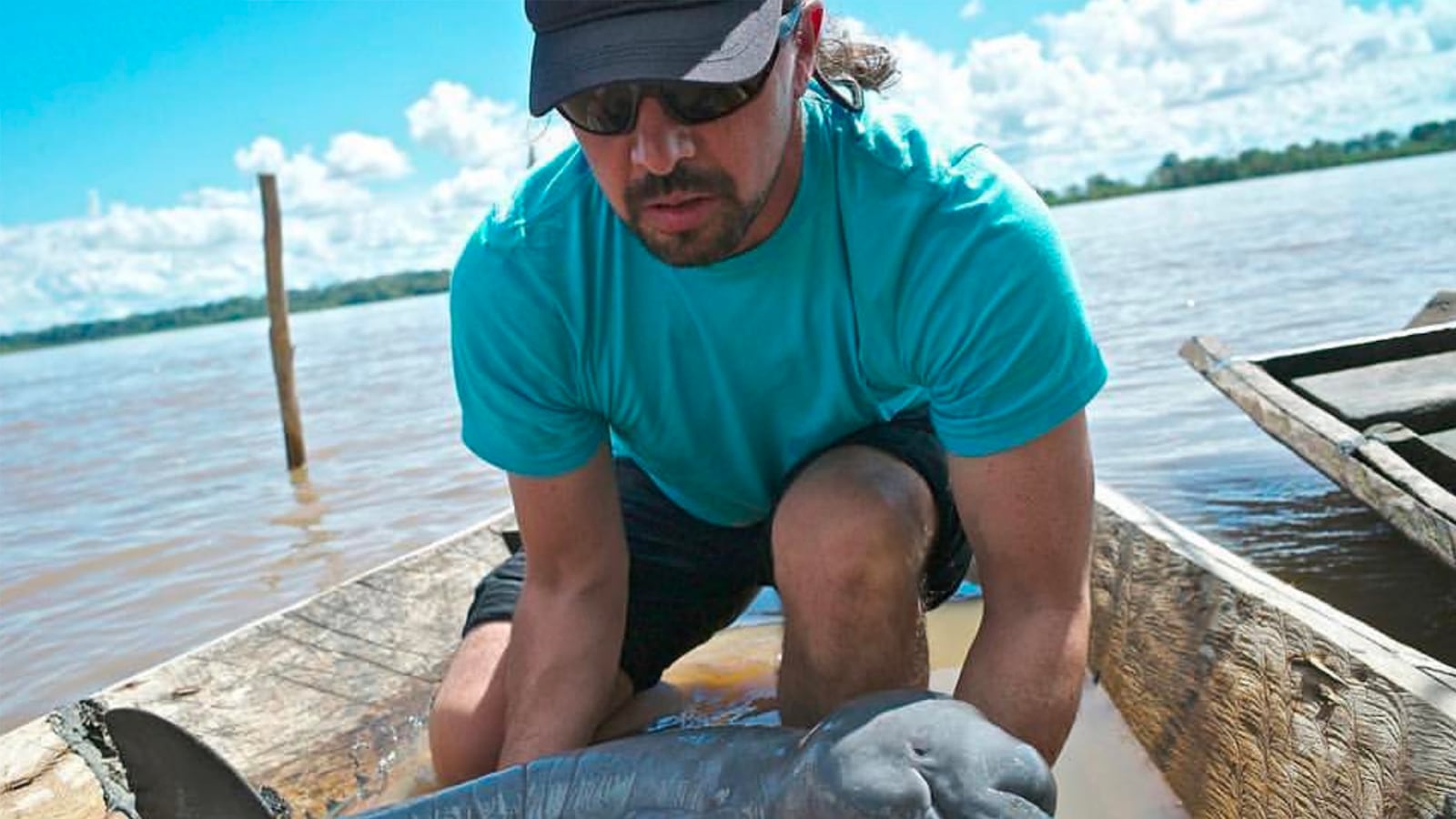More than three years ago in Bogotá, Colombia, I was contacted by producer Torus Tammer to be part of a movie that I assumed would be focused on the Amazon pink river dolphins. As on other occasions, I figured it would be an initiative on these fascinating creatures to which I have dedicated the last thirty years of my life. However, I soon realized that these producers wanted to go much further. He told me they didn’t want to make another “save the dolphins” kind of documentary, and that the focus would be on creating cinema and telling real human stories within the landscape. In doing so, Tammer said we could show a unique side of life that people do not usually get to see, and highlight themes that any human could connect to—regardless of their background or culture. This connected with me. Equally as important and curious was that the producers understood that my crusade by dolphins involved a great complexity of variables where political, economic and cultural elements were intertwined, and they saw a story in that through me.
I was at a point of strong reality in my work and life when we began filming. What I knew after dedicating over 30 years of my life to this most critical part of our planet was that the Amazon is seriously threatened and was no longer the pristine place that everyone imagines, where indigenous and nature coexist in harmony. More than 34 million people live in the Amazon, of which less than four million are indigenous, and the rest are people from other geographical regions. Among the main threats to the planet’s last great rainforest are massive deforestation, overfishing, illegal mining via dumping tons of mercury into rivers, as well as the fragmentation of bodies of water by hundreds of hydroelectric plants.
The dolphins play a key role in this great puzzle. Because the pink river dolphin is so mobile along the rivers, they experience all these threats directly. The dolphins have also generated great empathy in human beings, both in indigenous communities where they are considered sacred animals, as well as in the general public who watch the animals with great admiration and curiosity. This has stimulated the nature tourism of thousands of people in countries like Colombia, Brazil and Peru.
During the process of making this film, I ran into an unsuspected problem: the filming coincided with a very critical moment in my life where I showed the public and several government organizations that dolphins were being killed by the hundreds in Brazil to be used as bait to catch a scavenger fish whose main market was in Colombia. In principle, this situation shows that the fisheries in the Amazon are collapsing and that a species of fish, the speck or piracatinga, is being commercially exploited. No one in the region consumes this type of fish by its name—it’s known as a fish which “eats the dead.” However, consumers in big cities are being deceived as the piracatinga is being sold under another name to hide its origin.
As a result, many organizations have tried to stop this massacre of dolphins, which in recent years has been expanding not only in capture sites but also in surrounding countries. The approaches to control this were diverse: in Brazil they concentrated on dolphins and documented the killings. In my case, we focused on discouraging the fishery, since we could demonstrate with mercury analysis that this fish was not fit for human consumption. I never thought that with this approach I would open a Pandora’s box where I would be exposed to threats to the commercialization of this species, and the lack of support and involvement of the government sectors that had to face such situations. It became clear to me that the economic interests of a few prevail over public health and the conservation of biodiversity.
As a scientist I am accustomed to giving technical opinions on conservation issues, but the film also wanted to bring out my human and personal side, which often made me feel uncomfortable and insecure. Uncomfortable because they gave rise to feelings of frustration in understanding that the scale of the problems of the Amazon surpass all my efforts to want to contribute to the search for solutions, and that we really depend on political and economic actions of the governments that possibly never give to the speed and magnitude that is required. Unsure, because after several press releases and TV shows the threats have become stronger and I do not want the film to sharpen this situation. A River Below went from being a film to becoming an internal process for me to carefully decant and analyze what I am trying to do with my organization in this chimeric crusade for trying to preserve the Amazon, its dolphins, biodiversity in general and the people that live there.
What is happening in the Amazon is a mirror more of what is happening in the world. We still do not understand that our survival on this planet depends on taking urgent action now, and that our economic models are doing nothing but putting us more and more at risk as a species. We need all the commitments that are signed at the international level on the environmental issue, such as at the Paris COP, to be honored and fulfilled. In this, without a doubt, the United States and its new administration have a critical role in the world. The responsibility of being the most the most influential country on this planet is something that has been embraced and celebrated in both U.S. culture and politics for a long time. We are one planet and all have many things in common—one of those things being survival. In this most critical of times, we must continue to look to those who have established themselves as leaders and pioneers to continue the tradition of making the right decisions and putting humanity first.





